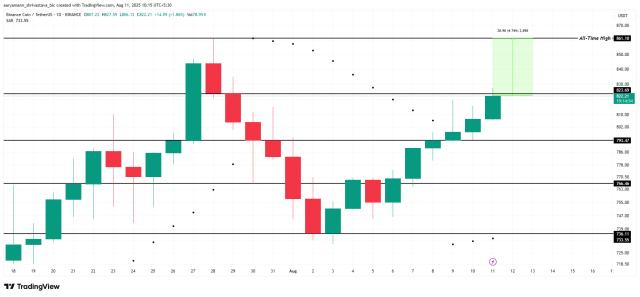Dubai’s regulatory framework tackles hybrid money laundering by extending compliance from on-chain activities to real-world endpoints like real estate, setting a global benchmark for crypto governance.
Aligning with Islamic finance principles, Dubai fosters Shariah-compliant digital asset innovation, enabling halal investment opportunities like blockchain-based sukuk, gold-backed tokens, and tokenized real estate projects.
Founder-friendly immigration policies, including the 10-year Golden Visa, attract global blockchain talent, fueling a thriving ecosystem of over 490 Web3 startups, including multiple funded and unicorn ventures.
Dubai is shaping the future of crypto by combining progressive regulation, Shariah-compliant finance, and founder-friendly immigration policies, creating a trusted, inclusive, and innovation-driven global digital asset hub.

Amid the global rise of digital assets, Dubai has positioned itself as the leading cryptocurrency hub in the Middle East and North Africa (MENA), propelled by its progressive regulatory framework, the Virtual Assets Regulatory Authority (VARA), which has already licensed 35 virtual asset service providers.
While many recognize Dubai for its business-friendly environment that has attracted major crypto players like Binance and OKX, the emirate also boasts three lesser-known but equally innovative policies driving its digital asset leadership.
A GLOBAL BLUEPRINT FOR HYBRID AML ENFORCEMENT
Illicit cryptocurrency activity has evolved far beyond simple on-chain transfers. In a typical scheme, criminals steal funds, convert them to high-liquidity coins, then obscure their origin through chain hopping, coin mixers, and privacy coins, eventually exiting through off-ramps like crypto ATMs. The record US$1.5 Bybit hack followed a similar trail of obfuscation, making recovery and attribution especially difficult.
Now, laundering schemes are going hybrid. In the United Arab Emirates, authorities have recognized that the real estate market —which is projected to reach a staggering US$693.53 billion by 2025— may pose a growing risk as a vehicle for money laundering. Crypto can be used to fund shell companies and purchase property, masking the origin of illicit assets. This “chain-to-concrete” method has blurred the line between digital and physical laundering, creating new challenges for regulators and compliance systems.
To counter this threat, the UAE introduced new rules in June 2025, mandating that all crypto-based real estate and merchant transactions be conducted through licensed Virtual Asset Service Providers (VASPs). These require full Know Your Customer (KYC) checks, source-of-funds verification, and restrictions on token types. The measures extend beyond on-chain activities to cover real-world endpoints where funds ultimately land, closing critical regulatory gaps.
Dubai’s approach sets a global benchmark. As tokenization of real-world assets like real estate, funds, and commodities accelerates, the risk of laundering across digital-physical boundaries grows. Dubai’s regulatory innovation shows that crypto governance must go beyond wallet addresses to encompass the tangible economy where illicit funds are parked, offering a model for other markets to ensure legitimacy and transparency.
As a licensed entity in Dubai, we at HashKey MENA are proud to contribute to the Emirate’s efforts to build a safer and more transparent crypto ecosystem. In 2025, we were authorized to provide both Virtual Asset Exchange Services and Virtual Asset Broker-Dealer Services within and originating from Dubai. To support this vision, we’ve implemented key safeguards such as segregated user assets, insured gateways for fiat and digital funds (with up to US$200 million in coverage), and other industry best practices. While there is always more work to be done, we remain committed to doing our part to promote trust, security, and responsible innovation across the digital asset landscape.
WHERE FAITH MEETS FINANCE
In the MENA region, crypto success depends not only on regulatory compliance but also on alignment with Islamic principles. Islam is the dominant religion across the region—roughly 9 out of 10 people are Muslim—and for many investors, particularly in the Gulf, financial products must adhere to Shariah law. This includes prohibitions against interest (riba), excessive speculation (gharar), and investments in unethical sectors such as gambling or alcohol.
As a result, businesses in the region operate under a dual compliance framework. They must meet evolving regulatory requirements—such as the UAE’s new mandates for reporting crypto-based real estate transactions—while also ensuring their offerings are Shariah-compliant. For firms seeking to capture meaningful market share, satisfying both standards is essential.
This convergence of legal and religious obligations is not a constraint but a strategic opportunity. Several recent projects in the MENA region already demonstrate how digital assets can serve as both innovative financial instruments and Shariah-compliant vehicles. Al Hilal Bank’s blockchain-based sukuk marked a global first, using Ethereum to execute a secondary market trade in accordance with Islamic finance principles.
The HAQQ Network has launched a gold-backed token and is developing smart contract-based sukuk, embedding Shariah compliance directly into code. In Dubai, Prypco’s tokenized property offering allowed investors from over 40 countries to purchase fractional shares of real estate for as little as AED 2,000, while ensuring alignment with halal investment standards.
Other entrepreneurs who design riba-free, asset-backed, and risk-sharing models can also gain market access and investor trust. In MENA, success requires fluency in both financial regulation and Islamic finance.
WELCOME, FOUNDERS: A POLICY FOR PEOPLE
While most countries highlight their regulatory frameworks to attract crypto firms, few give equal weight to immigration policy. In the global race for crypto dominance, regulatory clarity is just the starting point—but Dubai has gained a clear edge by pairing it with a progressive, founder-friendly immigration strategy. Its 10-year Golden Visa allows entrepreneurs to qualify by demonstrating that their project is valued at no less than AED 500,000 and is of a technical or future-oriented nature. Notable entrepreneurs who have likely relocated to Dubai under such programs include Pavel Durov (Telegram/The Open Network), as well as WazirX co-founders Nischal Shetty and Siddharth Menon.
Dubai’s immigration policy is deeply aligned with its digital asset ambitions. Freelance permits, streamlined startup licenses, and founder-friendly visa pathways have significantly lowered barriers for global talent, fueling a surge in blockchain innovation. Of the 494 Web3 startups based in Dubai, 168 have secured funding, including 21 at the Series A stage or beyond, and one has achieved unicorn status.
Other markets are beginning to take note. Hong Kong’s latest policy declaration, guided by the LEAP framework, explicitly includes talent development as a core pillar, recognizing that regulatory clarity alone is not enough. To build a thriving digital asset ecosystem, markets must prioritize attracting top global talent. Jurisdictions that fail to do so risk limiting innovation to local founders, a model that rarely scales. Silicon Valley offers a clear lesson: more than 55% of U.S. unicorns—319 out of 582—have at least one immigrant founder. It’s not just policy, but people, that power global tech hubs.
DUBAI’S GLOBAL CRYPTO BLUEPRINT
Dubai’s rise as a global crypto hub is no accident: it is the result of a deliberate strategy that integrates regulatory clarity, religious alignment, and talent mobility. By confronting hybrid money laundering, embracing Shariah-compliant innovation, and opening its doors to global founders, Dubai has created a uniquely inclusive and future-ready digital asset ecosystem. Its model goes beyond check-the-box regulation, recognizing that sustainable leadership in crypto depends not just on laws, but on values and people. As other markets race to catch up, Dubai offers a compelling blueprint: a place where technology, trust, and talent converge.
〈Dubai’s Crypto Ambition: The Convergence of Regulation, Faith, and Talent〉這篇文章最早發佈於《CoinRank》。







